Today I’m going to talk about something that may upset some people: generational trauma and the work to end it. This is something I hear a lot about these days, and I think it is bigger than we give it credit for.
What is Intergenerational Trauma?
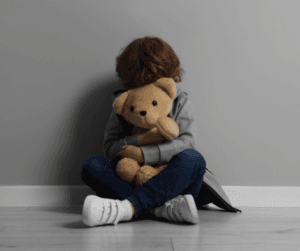 The American Psychological Association has a long definition that starts: the transmission of trauma or its legacy, in the form of a psychological consequence of an injury or attack, poverty, and so forth, from the generation experiencing the trauma to subsequent generations. It goes on to explain this trauma is often not just related to the psychological impacts on the person who experiences it. Trauma can influence the genes of those who experience it, which can lead to anxiety, a tendency towards substance abuse, and many other things in future generations.
The American Psychological Association has a long definition that starts: the transmission of trauma or its legacy, in the form of a psychological consequence of an injury or attack, poverty, and so forth, from the generation experiencing the trauma to subsequent generations. It goes on to explain this trauma is often not just related to the psychological impacts on the person who experiences it. Trauma can influence the genes of those who experience it, which can lead to anxiety, a tendency towards substance abuse, and many other things in future generations.
What are the causes for this kind of trauma? Most of us think of this kind of trauma as being caused by wars, homelessness, or extreme poverty. However, it doesn’t have to be that intense. Trauma such as growing up with a physically or emotionally abusive parent, a drug-addicted parent, or being neglected in early childhood can all create the kind of stress that changes you at a cellular level.
Breaking the Cycle
I’ve seen a lot of talk about cycle breakers lately. If you are one, I’m proud of you. That is hard work. However, I want to tell you specifically to be sure to cut yourself a lot of slack. First of all, if you were born into a family with any kind of generational trauma, you have been affected by that trauma on many levels. When your body physically holds the memory of abuse or neglect in your cells, it isn’t easy to get up each day and find a new way. Your brain may be hyper-alert, looking for danger that isn’t there. That can make you extra sensitive to your child’s loud play. You can tell yourself that a game where the kids playfully yell “Look out below!” as they throw their toys down a flight of stairs is just good fun for them, but that doesn’t mean your inner child knows. Your inner child knows that you would have been yelled at, punished, or worse for making so much noise, or playing the “wrong” way, or whatever set off your caregivers.
Parenting your own inner child is possibly the hardest part of overcoming your own childhood trauma. Your kids are going to do things that trigger your inner child to freak out. It is almost like they come programmed to do it. Your goal is to always stop yourself for a moment before yelling, and ask yourself if you really have a problem with what your kids are doing, or if you are responding to an unreasonable panic inside yourself. Some days, you may be able to step back and let the loud, obnoxious play happen. And it is okay to acknowledge that you won’t always be able to do that. On hard days, it is okay to tell your kids “Mama isn’t feeling great, can you please play something quieter.” Your kids don’t have to know why the game was upsetting you. Every mom on Earth is allowed to have a bad day and blame a headache for wanting the kids to play more quietly, even if it isn’t a typical “headache.”
Multiple Generations
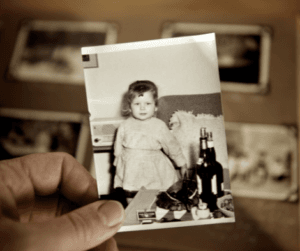 Now I’m going to tell you the part that I think is going to upset people. I don’t believe you can heal generational trauma in one generation. I think it takes multiple generations to get there. There are a couple of reasons for this.
Now I’m going to tell you the part that I think is going to upset people. I don’t believe you can heal generational trauma in one generation. I think it takes multiple generations to get there. There are a couple of reasons for this.
Epigenetics
First, we are talking about trauma that is stored in the cells of the body. Once upon a time, the egg that made you, was inside your mother when she was a fetus inside your grandmother. Pretty weird, right? So on a cellular level, you have been influenced by not only your mother’s trauma but your grandmother’s trauma as well. (Yes, your father’s trauma counts too, but sperm have a much shorter life span that isn’t nearly as interesting.)
So, the egg that made your child was inside of you while you were still inside of your mother. In a healthy, loving family, this is a beautiful thing. In a family trying to escape a history of trauma, this explains why your child may have anxiety and depression even though they haven’t experienced any trauma themselves. On a cellular level, they came into the world expecting more trauma, already demonstrating a stronger fight-or-flight reaction than a typical baby. Sometimes this hyperawareness, this constant vigilance of looking for danger that is at the core of their being, is diagnosed as ADHD.
Am I saying that it is your grandparents or even great-grandparents fault your child has ADHD? Maybe. Where there is research that indicates that early childhood trauma can lead to ADHD, and that ADHD runs in families, no one appears to have done the research to look for a link between trauma in a previous generation and the prevalence of ADHD in later generations. So, if your grandmother was a hateful old woman and you want to blame her for it, go ahead.
Parenting
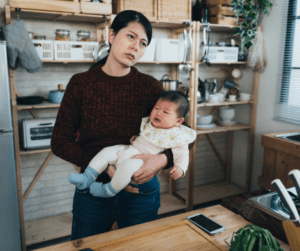 While epigenetics is the nature, in “Nature vs. Nurture,” parenting and nurturing are a significant part of generational trauma. And while I believe in you and your efforts to parent differently than your parents did, I think it is nearly impossible to be raised by parents who were abusive or neglectful or whatever you had to deal with and to get it all right as a parent yourself. That doesn’t mean that the work you are doing isn’t amazing and wonderful. I just think it is okay to acknowledge you can only change the behaviors you were able to identify as a problem.
While epigenetics is the nature, in “Nature vs. Nurture,” parenting and nurturing are a significant part of generational trauma. And while I believe in you and your efforts to parent differently than your parents did, I think it is nearly impossible to be raised by parents who were abusive or neglectful or whatever you had to deal with and to get it all right as a parent yourself. That doesn’t mean that the work you are doing isn’t amazing and wonderful. I just think it is okay to acknowledge you can only change the behaviors you were able to identify as a problem.
Let’s pretend your parents got a lot wrong. You are going to make a list of all the things you can see they did wrong and do better at everything on that list. It is probably a long list and a lot of work to break those cycles, to parent very differently than you were parented. The problem is, if they were that bad, you may have accidentally normalized some things that aren’t normal because your brain can honestly only register so many things as a problem. For example, you may believe you are a bad parent if you don’t keep the house spotless. Your mom insisted the house be spotless. Being a good parent has never required a spotless house, but your brain doesn’t see that idea as a problem in the face of the other things you had to deal with. But trying to keep a house with small children spotlessly clean can create a huge amount of stress for everyone. You may also overcorrect on some things. Like if your parents never cared how you did in school, you may accidentally put a lot of pressure on your own child to do well. It isn’t that you want to put pressure on them, it is just that you don’t know what the right amount of encouragement is if you didn’t have any.
There may come a day when your own kids grow up and tell you that you missed the mark in some areas like those. I hope that before that day comes, you get a chance to work on healing your inner child and that you know in your heart that you did all you were capable of doing. As far as I know, there is no book to help you identify the small ways your childhood wasn’t normal so that you don’t do those things. All the books and such seem to focus on the big things, and how were you to know how to correct things that no one told you were wrong?
It Isn’t Fair
 I’m not telling you this to make you feel bad, but because I think the talk about generational trauma is not fair. There is this idea you can fix all the generational trauma caused by the last 4 generations of your family if you just do enough. I think it needs to be enough that you are standing up and saying you are going to break the cycle. You are going to start the journey of generational healing.
I’m not telling you this to make you feel bad, but because I think the talk about generational trauma is not fair. There is this idea you can fix all the generational trauma caused by the last 4 generations of your family if you just do enough. I think it needs to be enough that you are standing up and saying you are going to break the cycle. You are going to start the journey of generational healing.
I believe in generational healing. I believe that you can raise your children with love and consideration and take them to therapy when that anxiety arises. I believe that will set them up to do even better as parents. They will then parent your grandchildren with love and acceptance and find that fine line between encouragement and pressure you didn’t know. They get a chance to do even better than you did. And someday, your great-grandchildren will be born without those genetic markers of trauma.

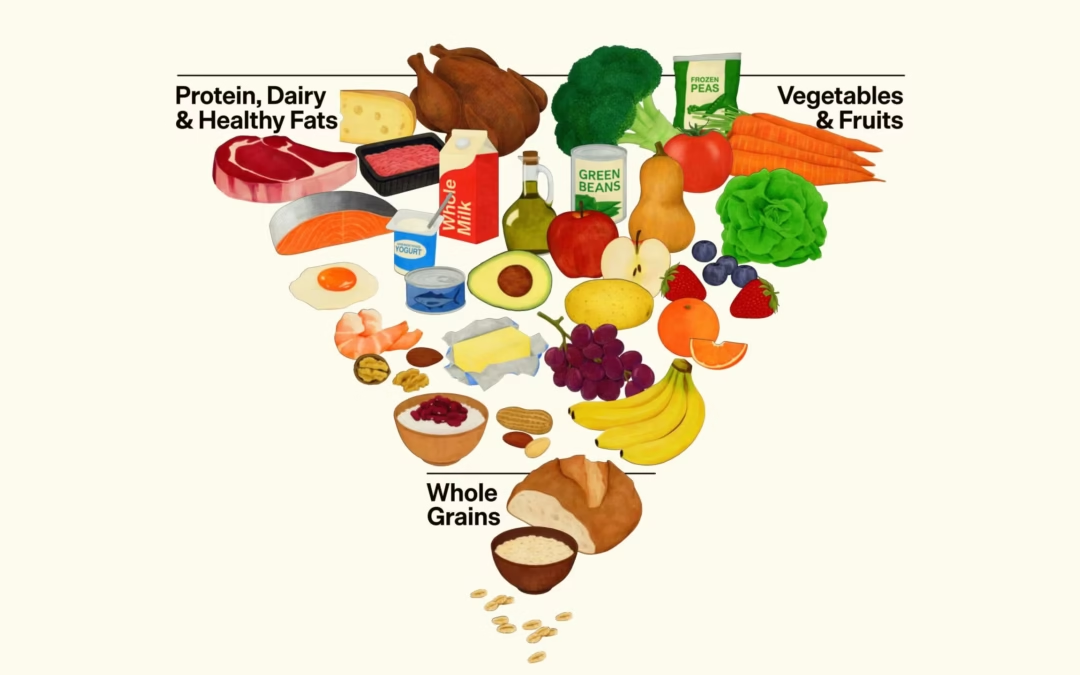

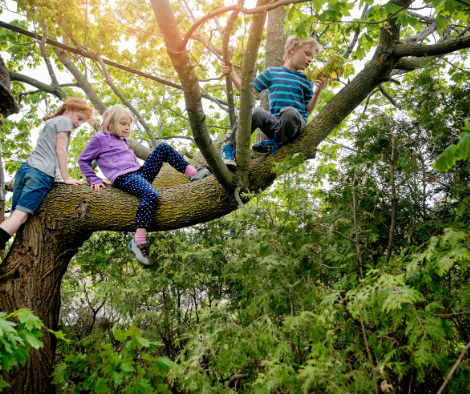

0 Comments